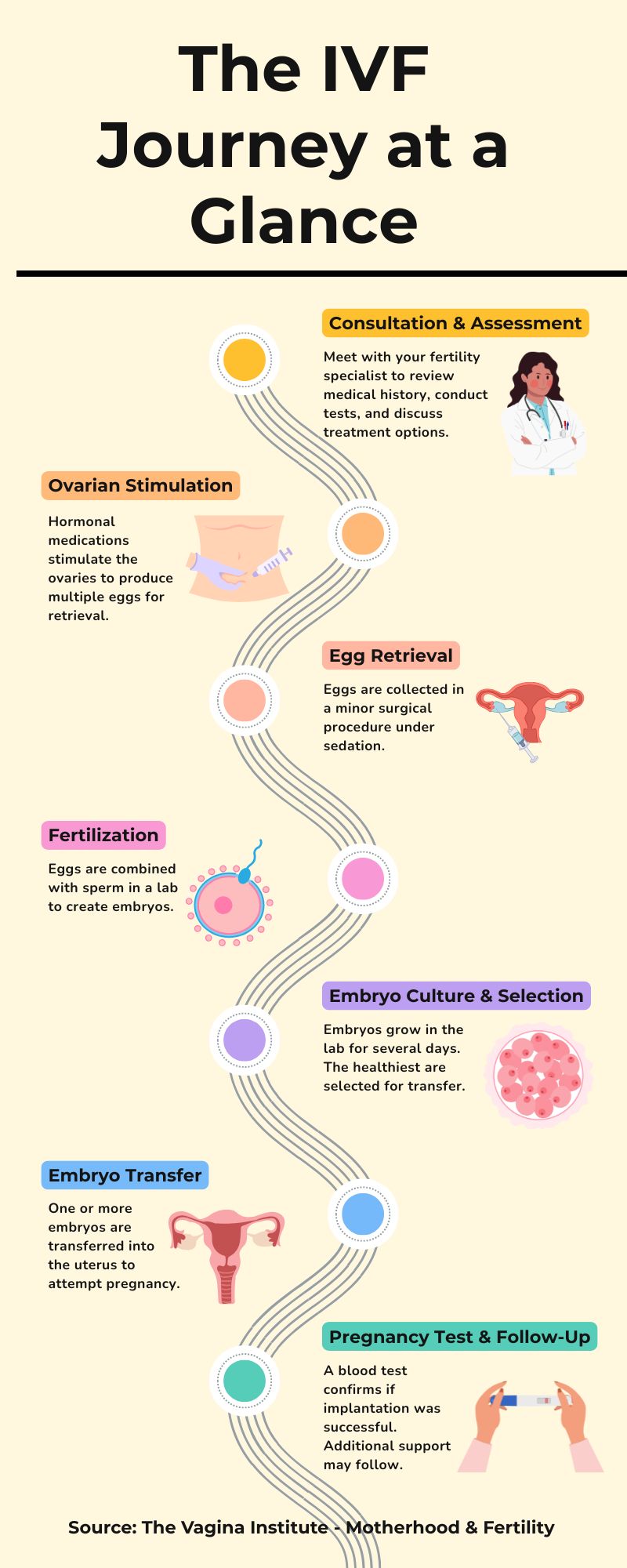Practical Tips for Navigating IVF and Fertility Treatments

Practical Tips for Navigating IVF and Fertility Treatments
Starting the journey toward parenthood through fertility treatments can be both hopeful and overwhelming. In-vitro fertilization (IVF) and other assisted reproductive technologies offer solutions for many individuals and couples facing challenges in conceiving. However, the process often involves emotional highs and lows, financial considerations, and physical demands.
This guide provides practical, non-judgmental tips to help you navigate the experience with clarity and confidence.
1. Understand the Process Before You Begin
Knowledge is your strongest tool. Before committing to any treatment, take time to learn about the steps involved, from ovarian stimulation and egg retrieval to embryo transfer and post-transfer care.
-
Ask Questions Early: Request detailed explanations from your fertility specialist about timelines, medication protocols, and success rates.
-
Clarify Terminology: Understand terms like “blastocyst,” “frozen transfer,” and “beta testing” so you can follow conversations easily.
-
Know the Risks: Be aware of potential side effects, such as ovarian hyperstimulation syndrome (OHSS), and ask about prevention strategies.

2. Choose the Right Clinic for You
Selecting the right clinic can significantly influence your experience and outcome.
-
Compare Success Rates: Review published statistics for your age group and condition, but interpret them cautiously as they don’t guarantee individual results.
-
Evaluate Communication Style: A supportive medical team that answers your questions promptly can make the process less stressful.
-
Check Costs and Payment Options: IVF and related treatments can be expensive. Some clinics offer financing plans or shared-risk programs that reduce upfront costs.
3. Prepare Emotionally and Physically
Fertility treatments can be demanding, so preparation is essential.
-
Set Realistic Expectations: Multiple cycles may be necessary. Managing expectations can reduce feelings of disappointment if results don’t come quickly.
-
Consider Support Options: Whether it’s a therapist, support group, or close friends, having someone to talk to can help you process emotions.
-
Maintain General Health: Follow a balanced diet, exercise moderately, and discuss supplements with your doctor to optimize your chances.
4. Organize Your Schedule
Fertility treatments often require frequent appointments, sometimes with little notice.
-
Use a Calendar App: Track medication times, appointment dates, and important milestones.
-
Plan for Time Off: Certain stages, such as egg retrieval, may require rest. Inform your employer if necessary, or plan vacation days in advance.
5. Understand Financial Implications
IVF costs vary widely and may not always be covered by insurance.
-
Check Insurance Coverage: Some policies partially cover diagnostics or medications but not the procedure itself.
-
Explore Alternative Options: Look into grants, employer benefits, or health savings accounts (HSAs) to help offset expenses.
-
Budget for Extras: Consider the cost of medications, storage fees for frozen embryos, and additional procedures like genetic testing.
Estimated IVF Costs Breakdown
| Expense | Estimated Cost 2025 (USD) |
|---|---|
| Initial Consultation | $200 - $500 |
| Medications | $2,000 - $5,000 |
| IVF Cycle (Procedure) | $10,000 - $15,000 |
| Embryo Freezing & Storage | $500 - $1,000/year |
| Additional Procedures (e.g., Genetic Testing) | $2,000 - $5,000 |
6. Prepare for Possible Outcomes
Not every cycle results in pregnancy, and having a plan for each scenario can help you feel more in control.
-
Discuss Next Steps: Talk to your doctor about what happens after a failed cycle, including the possibility of another round or alternative treatments.
-
Keep Perspective: Many couples need more than one cycle. Others may explore egg or sperm donation, surrogacy, or adoption if needed.
7. Take Care of Your Relationship
The stress of fertility treatments can affect relationships.
-
Communicate Honestly: Share feelings openly without blame.
-
Schedule Time Together: Make space for activities unrelated to treatment, whether it’s a weekend getaway or a quiet dinner at home.
-
Seek Counseling if Needed: Professional guidance can provide coping strategies for both partners.
Final Thoughts
IVF and fertility treatments can feel like a marathon rather than a sprint. While challenges are inevitable, being informed, organized, and supported can make the experience more manageable. Remember that every path to parenthood is unique, and progress often comes in stages rather than immediate success.
Disclaimer: The articles and information provided by the Vagina Institute are for informational and educational purposes only. This content is not intended to be a substitute for professional medical advice, diagnosis, or treatment. Always seek the advice of your physician or another qualified health provider with any questions you may have regarding a medical condition.


 Deutsch
Deutsch  English
English  Español
Español  Français
Français 




